Resources
Product Comparison
QuikTurn Vs. Rescobond Vs. EZ Est - Comparison
Part 1: Overview of Binders in Refractory Concretes
Part 2: QuikTurn Vs. Rescobond Vs. EZ Est
Part 3: Laboratory Results of QuikTurn Vs. Rescobond Vs. EZ EST
The three 60% alumina refractory concrete types that have abbreviated dry-out schedules were selected for evaluation to determine optimal conditions for use.QuikTurn
QUIKTURN is a newer castable technology that has been used over the past two decades and allows a quicker dry-out than traditional low-cement castables. QUIKTURN’s feature good strength formations even after curing and before drying (see Table 1). With this technology, heating for the initial dry-out can begin as soon as the material has taken its initial set and does not require the traditional 24 hour cure characteristic for a low-cement castable. The amount of alumina cement is relatively low for its mixes resulting in a low lime (CaO) content, and the overall refractoriness of the matrix is high. QUIKTURN materials are easily formulated for mechanized pumping to cast in place and for shotcrete installation, or for gunite application. In shotcrete or gunite applications, these materials have good set times and allow for trimming the lining after application. QUIKTURN materials do not adhere to existing refractory.
A typical initial heating rate in a one-component lining is to increase temperature by 100°F (56°C) per hour per hour to service temperature, compared to a rate of 50°F (28°F) per hour with several temperature holds for traditional low-cement castables. For QUIKTURN linings thicker than 9”, a slower temperature increase is recommended.
Phosphate chemically-bonded products (RESCOBOND) set fairly rapidly. These concretes feature very good abrasion resistance, moderate alkali resistance and also have a moderately expensive cost structure because of some of the high purity ingredients. The normal casting grade RESCOBOND 3000 does not permit mechanized installation, although gunite-grade RESCOBOND 3000G is readily available. RESCOBOND 3000 is suitable for use in preheater vessels.
A recommended initial heating rate for RESCOBOND materials is similar to QUIKTURN, with temperature increases of 100°F (56°C) per hour to operating conditions. It should be noted that this type of monolithic refractory has been used for hot gunning with success, so RESCOBOND appears relatively insensitive to the speed of dry-out.
Colloidal-silica bonded concretes (EZ EST) feature rapid development of strength upon installation, although ultimate strength remained lower than in the two other types of concretes throughout the range of heating. Cold crushing strength (CCS) of EZ EST 60 PC is only half that of QUIKTURN 60 PC, even after heating to 1500°F (816°C). Abrasion resistance is fair, at best, in the lower temperature ranges. For a primary lining of an EZ EST product, a suggested heating rate is to raise temperature 50°F (28°C) per hour to 400°F (205°C), hold at 400°F for one hour per inch of thickness, and then raise to operating temperature at 100°F (56°C) per hour. Note that the EZ ADDTM colloidal silica binder must not freeze either during transport or installation, as freezing will cause the silica particles fall out of suspension.
Part 2: QuikTurn Vs. Rescobond Vs. EZ Est
Part 3: Laboratory Results of QuikTurn Vs. Rescobond Vs. EZ EST
The three 60% alumina refractory concrete types that have abbreviated dry-out schedules were selected for evaluation to determine optimal conditions for use.
QuikTurn
QUIKTURN is a newer castable technology that has been used over the past two decades and allows a quicker dry-out than traditional low-cement castables. QUIKTURN’s feature good strength formations even after curing and before drying (see Table 1). With this technology, heating for the initial dry-out can begin as soon as the material has taken its initial set and does not require the traditional 24 hour cure characteristic for a low-cement castable. The amount of alumina cement is relatively low for its mixes resulting in a low lime (CaO) content, and the overall refractoriness of the matrix is high. QUIKTURN materials are easily formulated for mechanized pumping to cast in place and for shotcrete installation, or for gunite application. In shotcrete or gunite applications, these materials have good set times and allow for trimming the lining after application. QUIKTURN materials do not adhere to existing refractory. A typical initial heating rate in a one-component lining is to increase temperature by 100°F (56°C) per hour per hour to service temperature, compared to a rate of 50°F (28°F) per hour with several temperature holds for traditional low-cement castables. For QUIKTURN linings thicker than 9”, a slower temperature increase is recommended.
Rescobond
Phosphate chemically-bonded products (RESCOBOND) set fairly rapidly. These concretes feature very good abrasion resistance, moderate alkali resistance and also have a moderately expensive cost structure because of some of the high purity ingredients. The normal casting grade RESCOBOND 3000 does not permit mechanized installation, although gunite-grade RESCOBOND 3000G is readily available. RESCOBOND 3000 is suitable for use in preheater vessels. A recommended initial heating rate for RESCOBOND materials is similar to QUIKTURN, with temperature increases of 100°F (56°C) per hour to operating conditions. It should be noted that this type of monolithic refractory has been used for hot gunning with success, so RESCOBOND appears relatively insensitive to the speed of dry-out.

Leave a comment